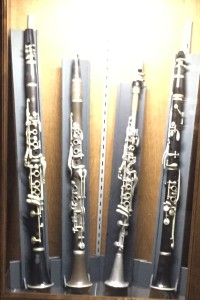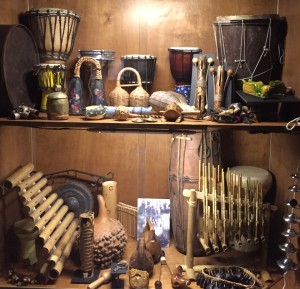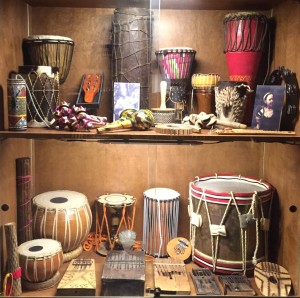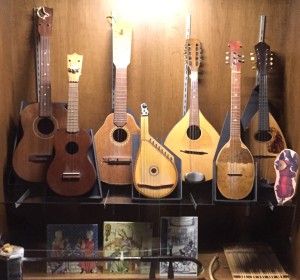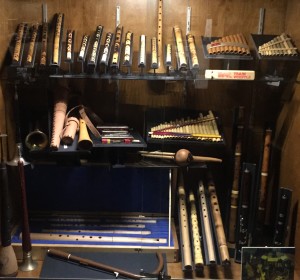I am pleased to announce the receipt of a 2015 ICCC (Interdisciplinary Centre for Culture and Creativity) Linking Fellowship Award, from the University of Saskatchewan, Canada. The fellowship, in the amount of $4150, will be matched by a $6000 grant by the university’s College of Arts and Science.
The award will be used to fund an expense-paid two-week fellowship at USASK in Saskatoon in late May, to complete work on the assessment, cataloguing, and purposing of the two-hundred-plus world music instrument collection owned by the Department of Music. The collection was donated to the department by the long-time resident composer and educator David Kaplan, who recently passed away at the age of ninety-one. Collected over a lifetime of travel, it was Dr. Kaplan’s wish that the instruments in the collection be used by students and faculty in the department for creative and academic purpose. The collection is currently housed in nine specially-designed display cases in Room 1038 in the Education Building.
As directed, the ICCC Linking Fellowship will combine scientific study and acoustic classification of the four basic instrument groups: idiophones (self-sounding instruments), membranophones (instruments with stretched heads, aka drums), chordophones (stretched string instruments), and aerophones (wind instruments). The majority of the instruments were collected globally in the Americas, Africa, Asia, and Europe. The collection also contains some clarinets personally played by David Kaplan.

